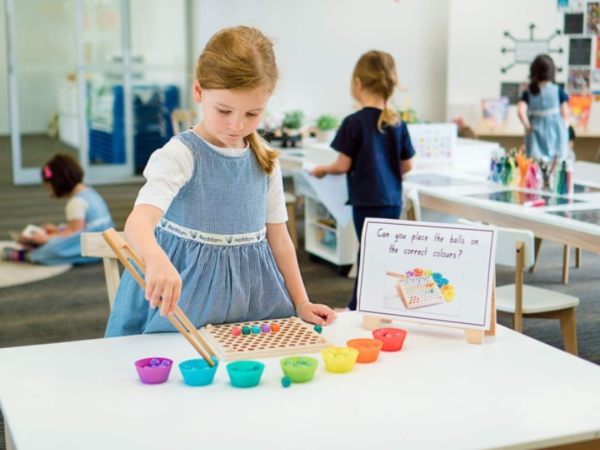Early childhood is a crucial period for cognitive, emotional, and social development. Engaging children in fun and educational activities during these formative years can lay the foundation for a lifelong love of learning. Parents, caregivers, and educators can employ a variety of strategies to make learning both enjoyable and effective. From structured early learning classes to interactive play, these approaches foster curiosity, creativity, and critical thinking in young learners.
Early Learning Class for Babies: A Foundation for Growth
An early learning class for babies offers a structured yet playful environment where infants can explore their surroundings safely. These classes focus on sensory stimulation, motor skill development, and early social interactions. Activities like gentle music sessions, tactile play with textures, and guided movement exercises help babies develop their senses and coordination. Such classes not only introduce children to the joy of learning at a very young age but also provide parents with valuable guidance on nurturing their child’s developmental milestones. By creating a stimulating and responsive environment, early learning classes for babies encourage curiosity and cognitive growth from the very beginning.
Free Educational Games for Kindergarteners: Learning Through Play
Using free educational games for kindergarteners is an excellent strategy to make learning enjoyable and interactive. Digital platforms and printable resources offer games that teach numbers, letters, shapes, and basic problem-solving skills. When children engage with these games, they develop essential cognitive abilities while having fun. The interactive nature of games keeps them motivated and focused, helping to reinforce concepts learned in the classroom or at home. Free educational games for kindergarteners also allow parents to be involved in the learning process, creating shared experiences that enhance understanding and retention.
Storytelling and Role-Playing: Imagination Meets Learning
Storytelling and role-playing are powerful tools to promote learning in early years. Through stories, children can explore new worlds, encounter diverse characters, and understand moral lessons. Role-playing allows them to step into different roles, practice social interactions, and develop empathy. Whether pretending to run a store, act as a doctor, or explore a fantasy world, these activities stimulate creativity and problem-solving. By incorporating familiar scenarios or imaginative themes, children can better relate to the content, making learning both meaningful and memorable.
Hands-On Activities: Experiential Learning
Hands-on activities engage children directly with their environment, turning abstract concepts into tangible experiences. Activities such as arts and crafts, simple science experiments, and cooking exercises help develop fine motor skills, observation, and reasoning. When children create something with their own hands, they gain a sense of achievement and pride in their abilities. These activities also encourage experimentation and curiosity, critical traits for lifelong learning. By fostering a “learning by doing” approach, children not only retain knowledge better but also enjoy the process of discovery.
Outdoor Learning: Nature as a Classroom
Outdoor learning provides children with opportunities to explore the natural world and develop physical, cognitive, and social skills simultaneously. Activities like nature walks, gardening, and scavenger hunts encourage observation, teamwork, and critical thinking. Fresh air and movement also contribute to better health and overall well-being, which supports effective learning. Incorporating outdoor experiences into daily routines allows children to connect classroom concepts with real-world experiences, reinforcing understanding and making learning dynamic and exciting.
Music and Movement: Engaging Multiple Senses
Music and movement are integral to early learning as they engage multiple senses and support brain development. Singing songs, dancing, and playing musical instruments can improve memory, rhythm, coordination, and language skills. These activities provide an outlet for self-expression and creativity, while also teaching patterns, sequences, and social interaction. Music and movement sessions are particularly effective in capturing the attention of young learners and keeping them motivated to participate in structured and unstructured educational activities.
Positive Reinforcement and Encouragement
Positive reinforcement is a vital strategy to build confidence and encourage continuous learning. Praising effort rather than just results helps children develop a growth mindset, understanding that challenges are opportunities for improvement. Recognizing achievements, no matter how small, motivates children to engage in learning activities and develop resilience. Creating a supportive and encouraging environment ensures that children view learning as a rewarding and enjoyable process.
Conclusion
Encouraging learning in the early years requires creativity, patience, and a variety of strategies. From structured early learning classes for babies to engaging free educational games for kindergarteners, children benefit from experiences that are interactive, enjoyable, and educational. Storytelling, role-playing, hands-on activities, outdoor exploration, music, and positive reinforcement all play essential roles in fostering curiosity, creativity, and critical thinking. By integrating these strategies into daily routines, parents and educators can cultivate a lifelong love for learning, laying a strong foundation for the cognitive, social, and emotional development of young learners.

